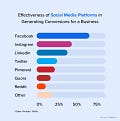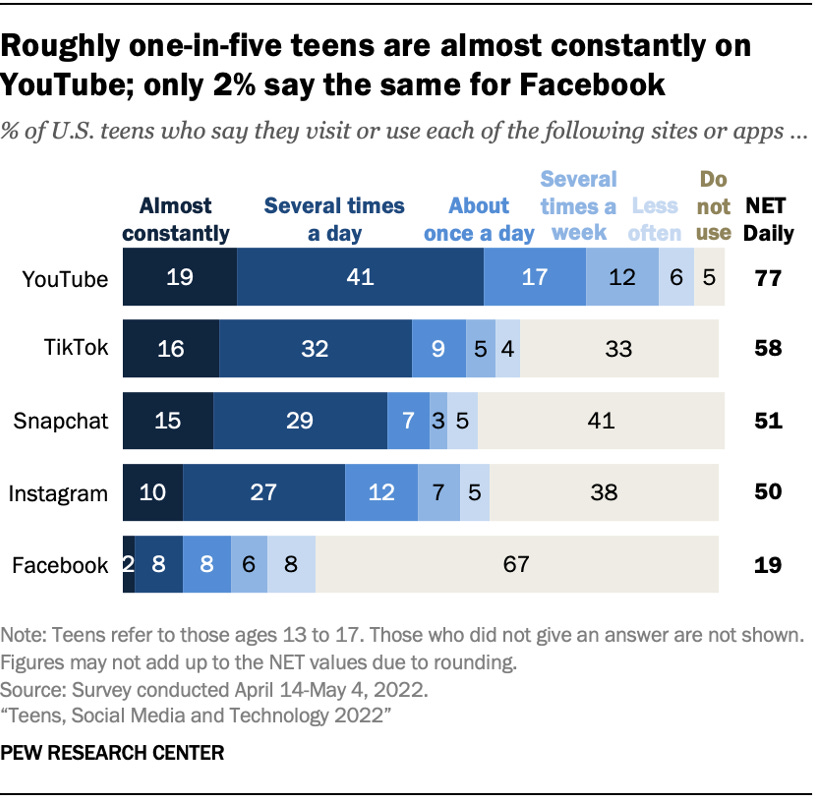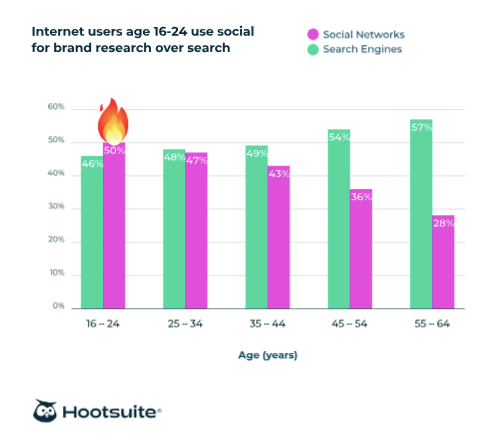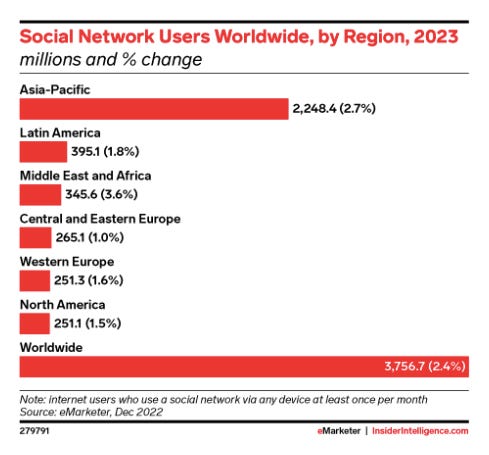Social Media for Young Entrepreneurs
Part 1: Arguments for using social media to market their business
Social media has become a primary marketing tool for most business ventures. Not to mention all organizations and society as a whole. We have shifted our entire culture toward this model of information access so completely that we have made it essential to our daily lives. We can’t live our lives without it.
With this ‘completeness’ we have given up our privacy. On a personal level this is unfortunate to say the least. However, on a business level it is revolutionary. This goes for any business - private venture, news, emergency services, charity, government, the local knitting club - social platforms have become the first stop for all communication and interaction.
It is the lack of personal privacy that is of most value to all of the above, a.k.a. data.
Your personal data are what drives the machine.
“Social media sites gather tons of information about their users and most people aren’t aware of just how much of their data is being tracked and saved by these big companies. A recent study by cloud storage firm pCloud found that Instagram was the worst offender when it comes to siphoning off your personal data. The photo-sharing app shares 79% of your data with third parties like advertisers, according to the study. This includes your browsing history, current location, contacts, and even financial information if you’ve purchased through the app. In second place was Facebook, which gives 57% of your data away to third parties. The social media giant was also one of the first companies to use facial recognition, although it has since removed this feature citing concerns about its misuse and potential risks of surveillance. Besides tracking your posts, likes, and shares, social media sites also collect a long list of data on their users[.]” source: Xiph Cyber
This includes: personally identifiable information, your location, texts and calls, your social interactions, device information (this is the biggest and scariest one - the name of your mobile operator and/or your Internet Service Provider (ISP), language, time zone, mobile phone number, IP address, connection speed, and, in many cases, information about other devices that are nearby or on your network), and if you purchase ANYTHING online they have your financial information. This includes your buying behavior. To add fuel to this invasion of privacy, these companies are being subpoenaed by your governments to provide what you are saying and who your are talking to.
To be clear these platforms don’t sell your data, they sell access to it and it is a large portion of their revenue model. As Facebook notes:
“We use the information we have (including your activity, such as the websites you visit and ads you see) to help advertisers and other partners measure the effectiveness and distribution of their ads and services, and understand the types of people who use their services and how people interact with their websites, apps, and services.”
And there it is. Your online behavior attached to all that other information about you; a data access revolution.
I know that’s not sounding like a great argument to allow your young entrepreneurs to use social media to market their businesses. But hear me out.
First look at the market demographics below. These are late 2023 numbers.
As you can see Facebook has the best conversion rate. What is conversion rate? Simply, what percentage of people buy versus how many people see the offer. There’s math to this and it can sometimes feel like a black box only skilled marketing and data analysts seem to know. On a small scale it is easy to see that if 100 people see your Facebook ad (yes ad, not page or post) and 5 buy your product after clicking on that ad, you have a 5% conversion rate.
However, in the next graphic you can see what platform teens use the most.
For any and all entrepreneurs the goal is to find your ideal customer. According to the charts below Gen Z uses social media to buy not just to follow and watch. Globally the market usage of social platforms is increasing at a breakneck pace. Asia seeing the fastest growth.
You can’t set this aside if you want to reach as many people as possible. Again, we have made it essential. As an entrepreneur it needs to be a key aspect of your marketing strategy.
But here’s the rub. You, young entrepreneur, are a very little fish in a very VERY big ocean.
How can you use these social platforms to sell your product or service? How can a 13 year old girl get her message out and not be lost in the ebb and flow of billions of posts a second? (It’s probably more but I’m too lazy to look that stat up).
Marketing, broadly speaking, like every other aspect of selling your idea, is a lot of work. It really doesn’t matter how you advertise and sell, it’s going to be a huge effort. Don’t waste your time in spaces of no benefit to you and your business. What you are selling should dictate the best platform as some are better than others for specific products or services.
In the course I stay away from anything other than local promotion. This is because it is contained and great practice. Not to mention largely free depending on how you do it.
To move into online advertising and marketing (they are different) your young entrepreneurs needs a strategy that is very targeted to their customer avatar. They need to know precisely where they are and on which social platforms. The above charts are a good start, but all online marketing needs to begin with sound research and, you guessed it, customer data. Which is available in spades online.
Social ads versus social brand awareness. Ads are where you pay to advertise on the a platform with ads you create (or pay someone to create) and those ads ‘convert’ into sales - online. It is extremely hard to track an ad that resulted in a purchase IRL. Conversely, non-ad based online marketing or online brand awareness is building an online presence for your business (social media being one option). We all know what this looks like and it has very low conversion to trackable sales. These are for ‘follows’ and ‘shares’ to ‘engage’. You use this approach to notify people that you exist, build an email list (way easier to sell to), drive traffic to a online store and to build a brand following. The latter is loosely the equivalent of a community poster. The former is closer to a sales guy following you around the store. One approach gives you no clear idea of success, the other can tell quickly if it results in a sale.
Note of caution: building your brand online is all about time and consistency. It takes months (and often years) of consistent posting to build an audience even remotely large enough to be of financial benefit. However, using social media to announce in-person sales or product releases is a great place to start. A good example is the artist selling works in an online marketplace (such as Etsy) but using Instagram to announce when the next item will be available for sale. Link in the bio to the store type thing. Instagram and Etsy both have tracking tools to see where many people came from and both can tell you if a redirect resulted in an immediate sale. If they move around and come back you have lost the data tracking (last I checked - this gets better and better every year). Is your traffic largely from Instagram, direct from Esty search, search engine or ‘other’? Over time you will be able to see trends and where to focus your marketing efforts. But it does take time.
Therefore, for your young entrepreneurs, I’d ask is it worth it? Especially when immediate success isn’t likely.
If it’s yes, here are my best reasons for young entrepreneurs to use social platforms to market their business:
They potentially (depending on personal access) already know the landscape well. Teens in particular are likely in the spaces their customers spend a lot of time.
The whole reason socials are awesome: sharing with community. This is the power of the social network. The “friends” and “friends of friends”.
Practice selling. Doing the research necessary to advertise (or tag) to the right group on the right platform and then engage with those people one on one, is very good practice. (we’ll assume for this argument they are all positive).
Instant feedback on their marketing strategy and the ability to change it quickly. Example: you color a bunch of posters, walk all over the neighborhood taping them up and no one shows up to your lemonade stand. Saddened by your failure you walk around again, collecting your posters, only to discover you put the wrong date or it wasn’t visible or it was washed out by the rain… you get my point.
There are other marketing models that could be better if you are after the whizbang effect. A PR release for example. Like Henry Patterson’s mom did with the local newspaper. That approach had some unexpected negative consequences despite it landing Henry on stage next to Richard Branson. Negative enough I think ‘putting them out there’ should be considered carefully before proceeding.
In my next post I will make my arguments against. To be honest I’m not on social media personally so I sit in the no camp more than the for camp. Am I missing out on great ideas and cool products? Maybe. I use Google extensively to research my needs so I get advertised to there. And yes Google is a huge miner of data so my stuff is definitely floating about on the servers at Alphabet Labs - I’m certainly not wearing a tinfoil hat. Social media clearly has a place in a business marketing strategy if done right and there are a few platforms I think are a very good fit for many young entrepreneurs.






